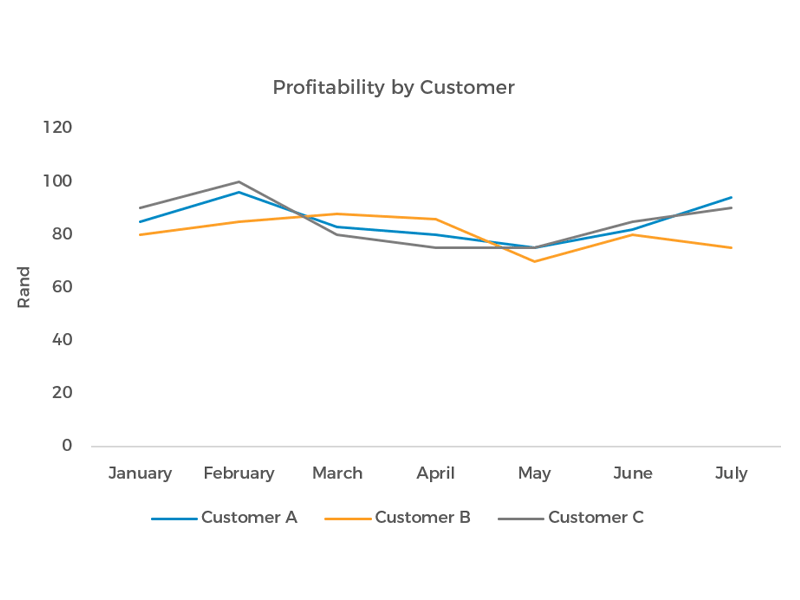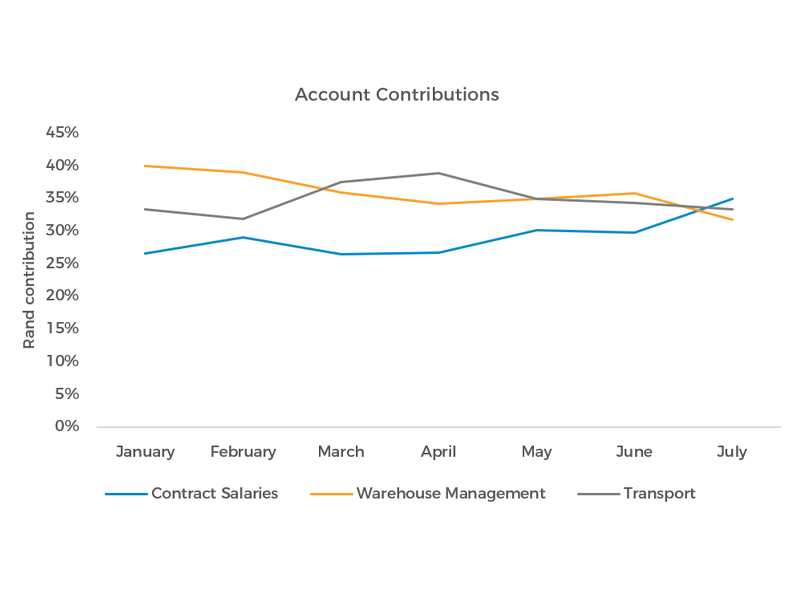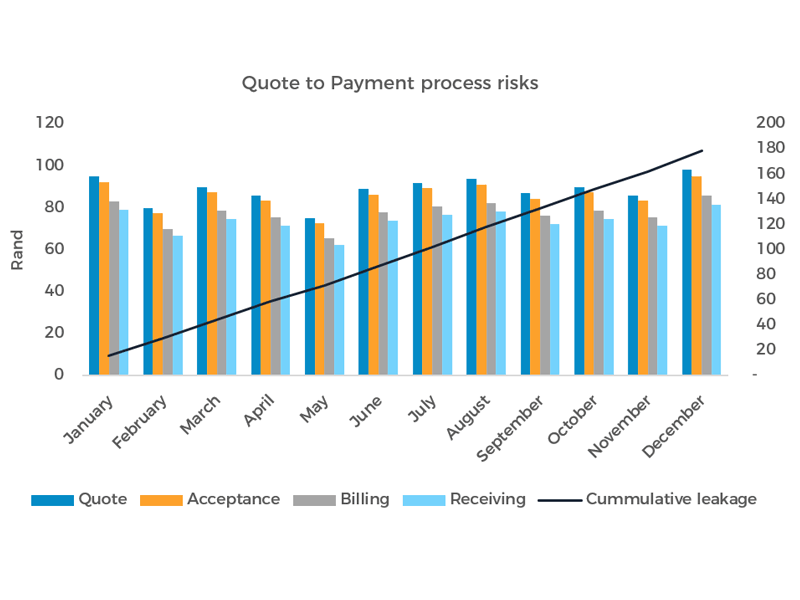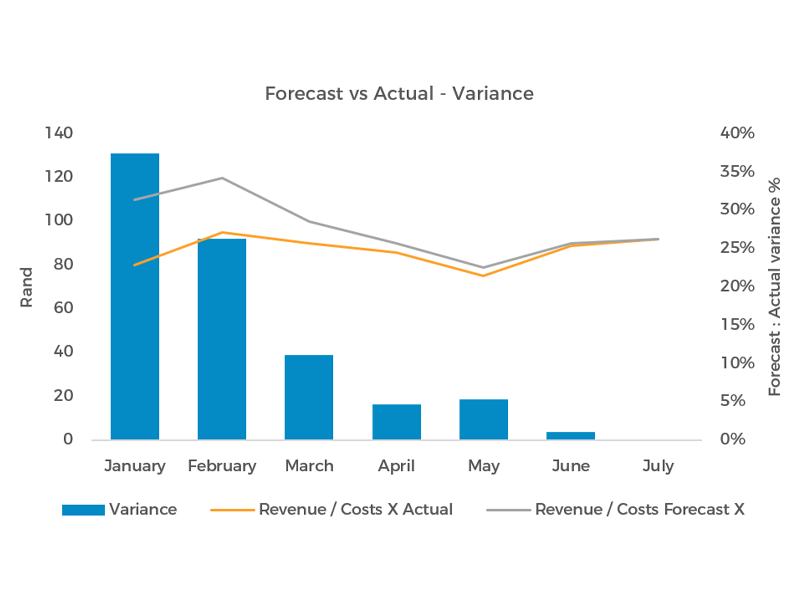Financial Intelligence
Analyse management accounting information to improve business profitability by identifying revenue, cost and profitability optimisation opportunities or risks.
Cost and Profitability Modelling
Financial Analytics
Financial Leakage Reduction
Forecasting
Financial Intelligence
Cost and Profitability Modelling
Creation, maintenance and analysis of profitability models which utilise drivers of business functions to produce a financial representation of business operations.
- Financial models assist in the understanding of business operations through a financial lens.
- Efficient financial models accurately display the impact of changes in business operations.
- Using operational drivers, models can allocate costs appropriately to business functions, units of sale and thus products and customers allowing you to hone in on inefficient business functions, non-profitable products and costly customer behaviours.

Financial Intelligence
Financial Analytics
Deep dive into financial records to identify trends, variances, concerns and opportunities in order to mitigate risks and exploit opportunities.
- All company expenses should have a contribution to the betterment of the business and financial analytics allows us to identify if this does occur.
- Financial analytics is a broad term with multiple levels of introspection, all of which share the overarching purpose of ensuring that business funds are effectively and efficiently utilised and allocated.
- All financial reports are considered in financial analysis - it can be as simple as an income statement and the underlying chart of accounts.
- Understanding the allocation of all expenses allows us to reduce unnecessary expenses or reallocate expenses to efficient or revenue generating areas of the business.

Financial Intelligence
Financial Leakage Reduction
Review of financial processes from pricing to payment across both suppliers and customers to identify and resolve previous and potential leakages.
- Financial leakage refers to the variance in money expected to flow into your business and the money actually received, or the expected payments from your business against the payments actually made.
- This variance occurs due to inefficient business processes or the lack of process automation.
- It can also be a function of ad-hoc business agreements, a lack of visibility or understanding of agreements, or non-existence of agreements.
- The reduction in profitability due to leakage can be significant, but there are often simple solutions to rectify and reduce the leakage.

Financial Intelligence
Forecasting
Create the financial representation of the business future state in accordance with operational expectations.
- Often when businesses talk about forecasting, they refer to expected sales volumes and the associated revenues.
- Often there isn't much, if any, consideration given to the operational costs which vary alongside this, meaning there isn't an accurate expectation of profitability.
- Businesses generally use forecast models for tracking purposes, however, there is great value in utilising forecast models for resource planning and understanding variances from expectations.

